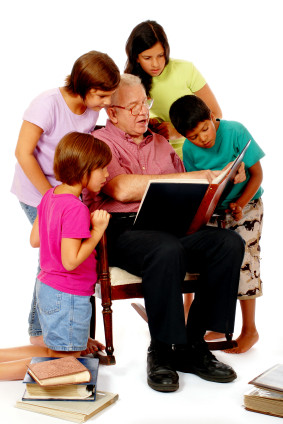This fall, my main squeeze and I are getting married. We’ve been dating for almost four years, and we’ve been engaged for so long people think we are dragging our (probably cold) feet. “What’s the hold up?” our friends ask. “Are you or aren’t you getting married?”
Our hesitation is about the children, of course. My guy lives with his two children in a different county from me and my two children. All four kids are happy in their schools and their communities—not to mention living near their other parents.

My children and I are not planning on moving to Marin; he and his children are not planning on moving to Berkeley. It’s a logistical puzzle with some unique pieces, but I believe at its center is a question nagging many of us today: How do we build a happy family?
That’s the question Bruce Feiler poses in his recent book, The Secrets of Happy Families, and in his wildly popular New York Times article, published earlier this spring.
It turns out that a large part of constructing a happy family is about creating a particular type of narrative about our family history, one that demonstrates that members of our family have been through both good and bad times together, but through it all we’ve stuck together. This is a way of modeling your family’s grit and growth mindset.
Researcher Marshall Duke calls this the “oscillating family narrative,” and he and his colleagues have found that that when kids internalize it, they emerge more confident, with an “intergenerational [sense of] self.” That is a jargony way of saying that kids who know a lot about their family history—the parts that they didn’t experience themselves, but that were passed down to them through stories—feel that they are a part of something much larger than themselves.
When we give kids this sense of being part of something bigger than just themselves, they reap enormous emotional benefits, according to Duke and fellow researchers Amber Lazarus and Robyn Fivush, in a study made famous by Feiler. These benefits include:
-a greater sense of control over their lives;
- higher self-esteem;
- better family functioning;
- greater family cohesiveness;
- lower levels of anxiety;
- fewer behavior problems.
In fact, in Duke, Lazarus, and Fivush’s research, knowledge of family narrative was more strongly associated with children’s emotional well-being than any other factor.
It’s not that knowledge of your family history provides all those benefits in and of itself; the way to build a happy family is not necessarily to start giving kids family history lessons. The researchers explain:
“If simply knowing family history could make for better states of well-being, some might propose (confusing correlation with causation) that we simply teach children various facts about their families and they will become stronger. Clearly, this approach would not work!”
Duke, Lazarus, and Fivush go on to explain that most kids come to know their family history at times like dinner, or on vacation, or through holiday traditions—and that other research shows that these same situations and experiences occur more frequently in cohesive families.
All of these things together—family dinners and vacations and all the talking and playing that occurs because of them—help kids develop an intergenerational sense of self. Kids experience themselves as a part of something larger, and that sense gives them “the personal strength and moral guidance…associated with increased resilience, better adjustment, and improved chances of good clinical and educational outcomes.”
So the way to build a happy family is to help kids develop that intergenerational sense of self, and the way to do that is, in part, to build family time and rituals where you can construct narratives about your family.
Next week we’ll get started with 20 discussion questions that will help you start creating your own “oscillating family narrative.” It’s going to be fun!
References:
Duke, M P, A Lazarus, and R Fivush. “Knowledge of Family History as a Clinically Useful Index of Psychological Well-being and Prognosis: A Brief Report.” Psychotherapy (Chic) 45, no. 2 (2008): 268–272.
Bohanek, Jennifer G., Kelly A. Marin, Robyn Fivush, and Marshall P. Duke. “Family narrative interaction and children’s sense of self.” Family Process 45, no. 1 (2006): 39-54.
© 2013 Christine Carter, Ph.D.
Like this post? We hope you’ll become a fan of Raising Happiness on Facebook, or sign up for the Raising Happiness monthly newsletter.


Comments